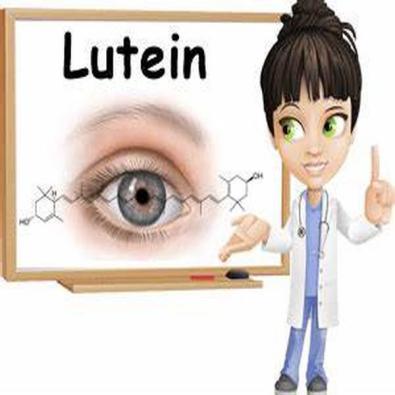Nicknamed “the eye vitamin,” lutein is a type of carotenoid antioxidant that is most well-known for protecting eye health. In fact, eye vitamins with lutein are some of the best vitamins for macular degeneration.
Ask yourself this question: How many colors are in your favorite foods? The answer will tell you how much lutein you’re getting. Just like many other types of antioxidants, it is found in brightly colored foods like fruits and vegetables — especially leafy greens and types that are deep orange or yellow.
Along with another vision-boosting carotenoid called zeaxanthin, it is abundant in anti-inflammatory, cancer-fighting foods including kale, broccoli and many other green vegetables, eggs yolks, and citrus fruits — all of which studies show help protect the eyes from oxidative stress.
When we eat foods high in lutein or take it in supplement form, it’s believed to be pretty easily transported around the body, especially to the parts of the eyes called the macula and the lens. In fact, there are more than 600 different types of carotenoids found in nature, but only about 20 make their way into the eyes. Of those 20, zeaxanthin and lutein are the only two that are deposited in high quantities into the macular portion of the eyes.
The antioxidant abilities of lutein help fight free radical damage caused by blue light or sun exposure, a poor diet, and other factors that increase the risk of developing age-related vision loss or disorders. These include problems like macular degeneration and cataracts.
In the process, antioxidants like lutein protect healthy cells while halting the growth of malignant cells.
Within the eyes, one of the most important functions of the lens is to collect and focus light on the retina. That is exactly why the lens needs to remain “clear”and free from the cloudiness that is indicative of cataracts. The major reason the lens becomes cloudy is damage due to oxidation. This is why we need antioxidants to help neutralize free radicals.
Even in people who have existing eye damage, including plenty of lutein in their diets can help stop the condition from progressing and further damaging vision.
This eye vitamin isn’t just beneficial for older adults — taking preventative measures is the real key to preserving your vision and eye health. Both older and younger people should consume plenty of lutein in order to reduce the risk of oxidative damage that can lead to disorders down the road.
Although carotenoids are extremely important for vision and your eyes, their benefits don’t stop there. Aside from protecting eyes, lutein uses also include helping prevent skin disorders, several types of cancer including colon or breast cancer, type 2 diabetes, and risk factors associated with coronary heart disease.
What is the best eye vitamin for macular degeneration? Lutein vitamin is considered a natural treatment for macular degeneration symptoms (AMD), which is considered the most common cause of blindness among older adults. Estimates show that more than 25 million people worldwide are affected by age-related macular degeneration or cataracts, especially people aged 55 and older living in industrialized Western nations. Sadly, the incidence of AMD is expected to triple by 2025, according to the American Optometric Association.
Lutein protects the eyes by filtering out a percentage of damaging short-wavelength UV light that negatively affects delicate parts of the eyes, such as the retina (the macula). Researchers at Harvard University have found that supplementing with lutein daily can lower the risk for macular degeneration.
Similarly, other studies show that higher dietary intakes of zeaxanthin and lutein along with other natural antioxidants, including vitamin C, beta-carotene and vitamin E, are associated with a significantly decreased risk of cataract formation. While the research is still in its early stages, taking lutein three times weekly for up to two years has been shown to improve vision in older people who already have cataracts.
When it comes to eye health, every person is different in terms of how much lutein is most beneficial. It’s possible that for some people, even with a relatively high intake of high-antioxidant foods, their blood levels might be high enough in nutrients like lutein, but testing tissues within their eyes will show that their retinal levels still remain too low. Luckily, doctors now have the ability to measure macular pigment levels of lutein in someone’s eyes in order to determine if that person is at an increased risk for disease. By performing a macular pigment optical density test (MPOD), doctors can better give specialized dietary recommendations for protective nutrients based on individual responses, genetic predisposition and lifestyle factors.
Post time: Mar-27-2020
